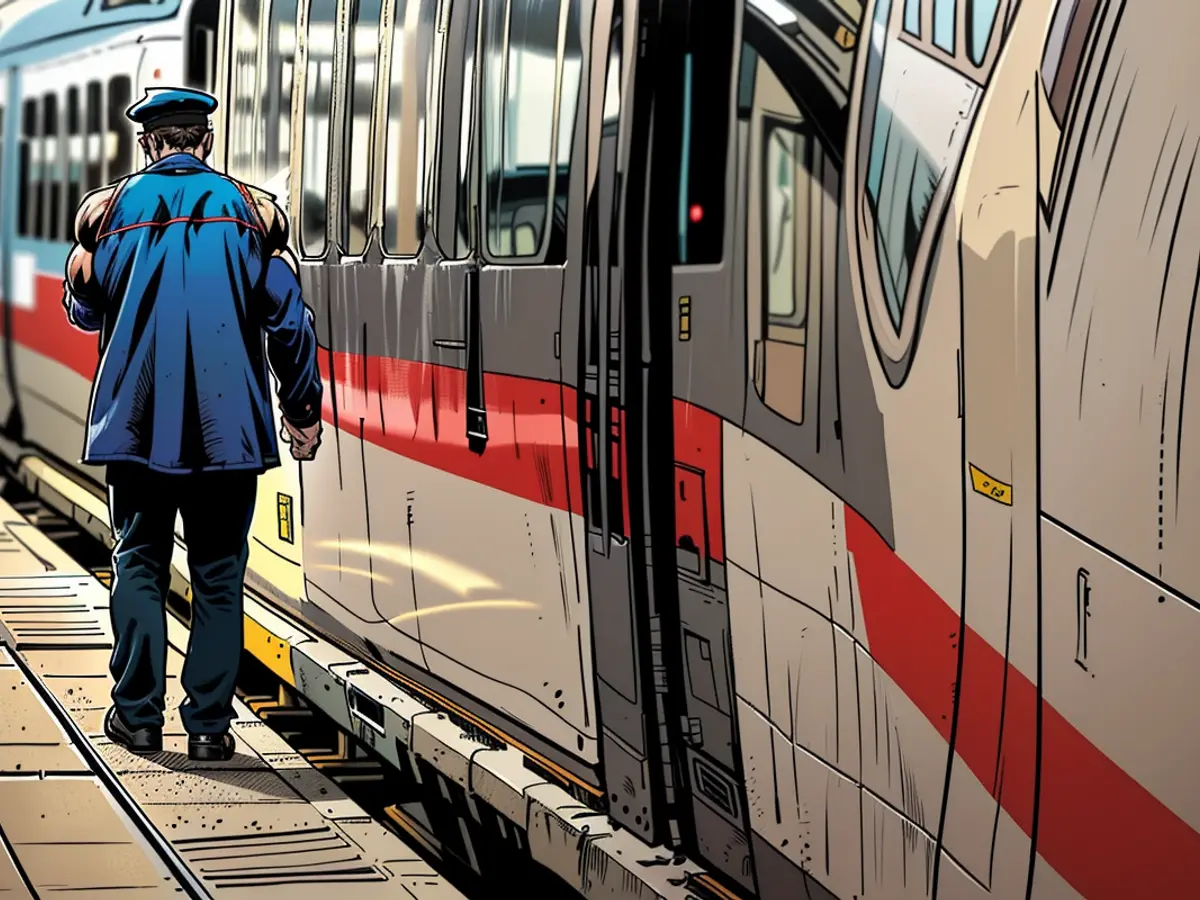Bahn will cut 30,000 jobs
The Bahn continues to incur high losses and must save. Now, the conglomerate plans to make cuts to staffing and expenses to get back into the black. 30,000 positions are set to be eliminated over five years. On the other hand, new jobs could be created.
The Bahn announced new billions in losses and plans to make staffing and expense cuts to get out of the red. Not only the tracks need repair, but the Freight Rail and Passenger Transport sectors also need to become profitable again, stated the state-owned company. This will also affect the workforce: "We need to create more train service with fewer people," announced Financial Director Levin Holle. Over five years, 30,000 positions, primarily in administration, are expected to be eliminated. This year alone, 1,500 jobs will disappear.
However, new jobs could also be created, such as operational personnel, who will continue to be recruited. The Bahn employs around 211,000 people in Germany. Transport Minister Volker Wissing expressed concern over the losses: "The financial statements underscore the urgent need for action." The federal government will provide the money for the network. However, the Bahn must become more economically viable. In the first half of the year, the state-owned company reported a loss of 1.2 billion Euros after deducting interest and taxes.
Germany Ticket making an impact
The conglomerate acknowledged that the German railway as a whole was producing losses. In March, it had already responded with an expenditure freeze, aiming to save several hundred million Euros by 2024. For instance, passenger traffic in long-distance rail had decreased due to poor punctuality and track maintenance. Only 64 million people traveled with IC and ICE trains, four million fewer than in the previous fiscal year. The punctuality rate was projected to be between 63 and 67 percent for the year, significantly below the targeted 70 percent.
The operating loss for the division increased to 230 million Euros. Moreover, the affordable Germany Ticket in local rail is having an impact, as more people are opting for regional instead of long-distance trains. In a Reuters strategy paper, the division also hinted at potential cuts in peripheral areas. They plan to offer a reliable basic service in the regions "wherever it is economically viable," it reads there. Sixty percent of long-distance services reported losses, particularly on peripheral lines. The offering will be "adjusted."
Bahn CEO Richard Lutz denied that the Bahn was currently planning cuts. However, the passenger advocacy group "Pro Bahn" expressed understanding: "There are stretches where the ICE doesn't run faster than the Regional Express. People naturally travel with the Germany Ticket as it's expensive in the ICE," said Association Chairman Detlef Neuß to the "Rheinische Post." Additionally, these have always been problematic stretches for the Bahn.
The Goods Railway incurred not only losses but also transported ten percent less cargo in the first half of the year. The division is in a prolonged crisis. The deficit increased to 260 million Euro in the first half of the year, a third more than the previous year. The EU no longer wants to cover the losses of DB Cargo through the entire group due to distorting competition with other railway companies. The Federal Government has been negotiating with the Commission for months.
Notable black figures were written only by the international freight forwarder Schenker, which is up for sale. It generated an operating profit of 520 million Euro, but this was also 100 million Euro less than in the previous fiscal year. The railway wants to find a buyer for Schenker this year. The proceeds should mainly flow into debt reduction. The group, despite a capital increase of three billion Euro from the Federal Government this year, is still 33 billion Euro in debt.
The Bahn is seeking to reduce its expenses by dismantling 30,000 positions over five years, a significant portion of which are administrative roles. This is part of the company's plan to turn its ice-cold financial situation around, as it continues to post losses.
Despite these cuts, there is potential for new jobs in operational sectors, such as maintenance and service, as the Bahn seeks to improve its infrastructure and service offerings. This economic overhaul is a crucial step towards making German Railways more viable and avoiding further financial hardships.








